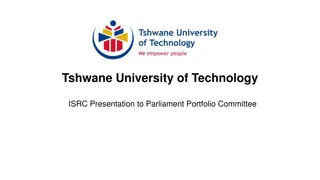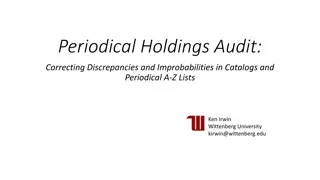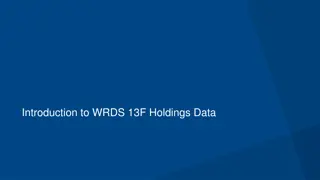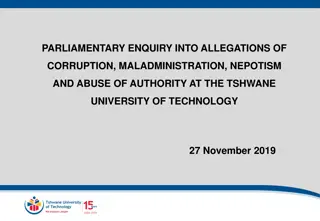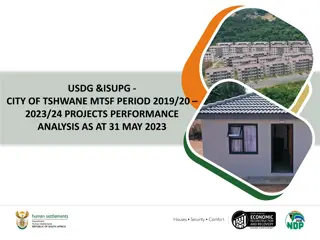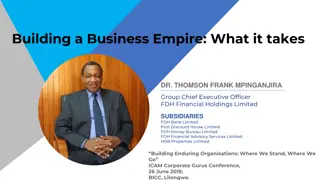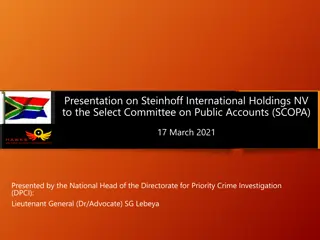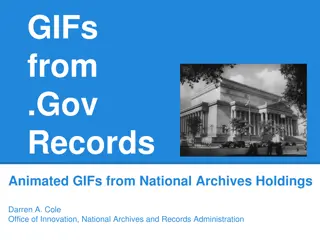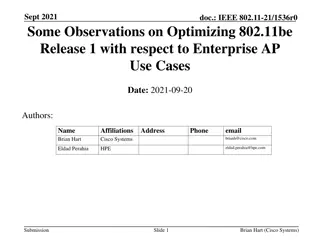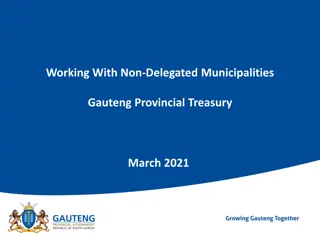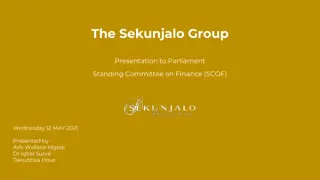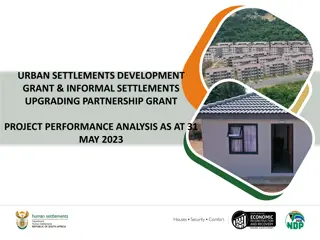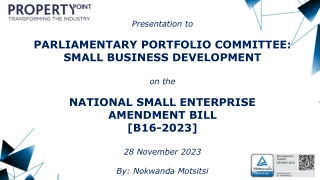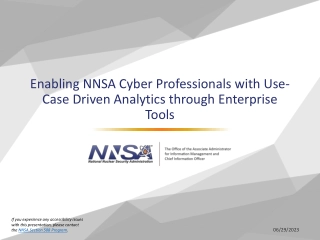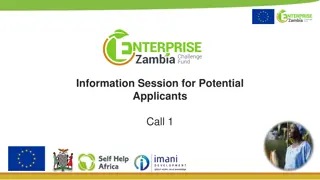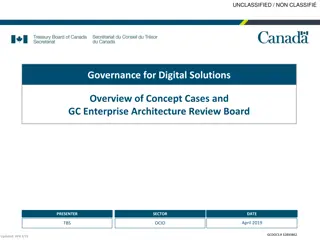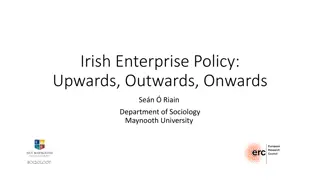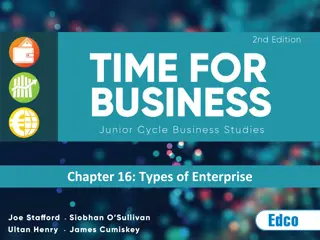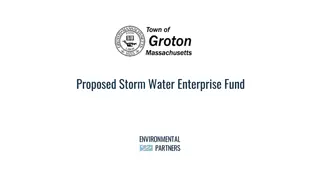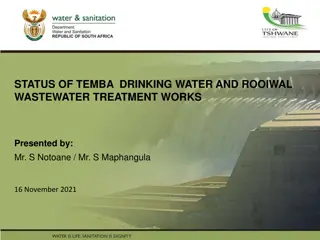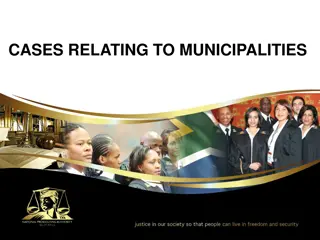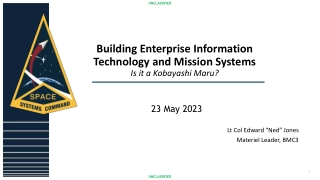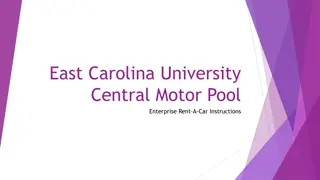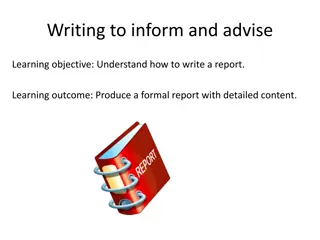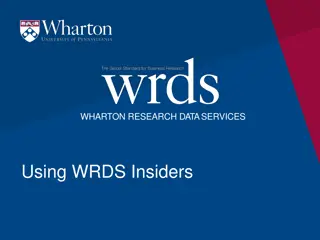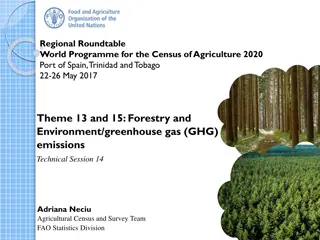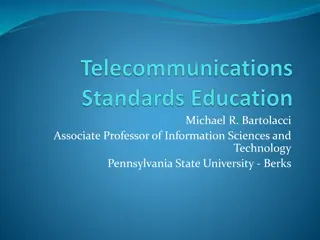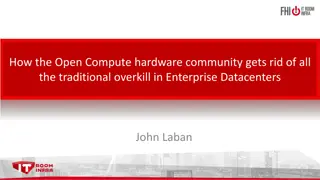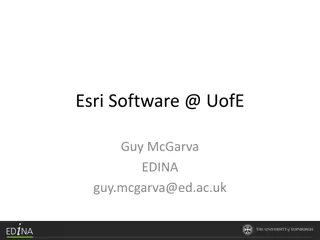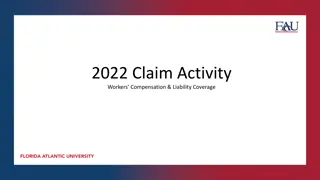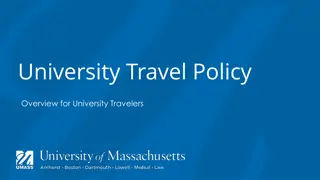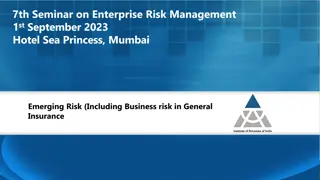Tshwane University of Technology Enterprise Holdings Report
An independent factual findings report was compiled by R.N. Theunissen in response to concerns raised by stakeholders regarding Tshwane University of Technology Enterprise Holdings. The report, finalized in June 2020, covers methodology, findings, and recommendations, highlighting issues such as the housing of TUTEH in a separate legal entity and the management of third stream income. Recommendations from the report should be carefully considered by the TUT Council.
Download Presentation

Please find below an Image/Link to download the presentation.
The content on the website is provided AS IS for your information and personal use only. It may not be sold, licensed, or shared on other websites without obtaining consent from the author. Download presentation by click this link. If you encounter any issues during the download, it is possible that the publisher has removed the file from their server.
E N D
Presentation Transcript
TSHWANE UNIVERSITY OF TECHNOLOGY ENTERPRISE HOLDINGS (PTY) LTD TSHWANE UNIVERSITY OF TECHNOLOGY ENTERPRISE HOLDINGS (PTY) LTD TUTEH TUTEH Factual Findings Report compiled by R N Theunissen Following concerns raised by certain stakeholders an independent factual findings report was commissioned by the Tshwane University of Technology Council to be considered by a 3 person ad-hoc committee of the Council. R N Theunissen was appointed to perform the factual findings and present the report. 3 individuals conducted a review of the factual findings Ms Ansie Ramalho; Dr Antonio Pooe and myself (Rob Theunissen) 1
TUTEH TUTEH Factual Findings Report Factual Findings Report 1. The methodology proposed, which was accepted by the TUT ad-hoc committee, is set out on pages 7 to 16 of the 125 page report. This methodology reflects the proposed approach juxtaposed with the actual approach in relation to the terms of reference furnished by the TUT ad-hoc committee. 2. R N Theunissen was appointed on 1 April 2020 and the report was finalised on 19 June 2020, which report was presented virtually to the TUT Council on 29 January 2021 after several postponements (initially the report was due to be presented to the TUT Council on 19 June 2020). 3. It is important that for a full appreciation of the scope of work, methodology, findings and recommendations the report should be considered in its entirety. 4. The TUT Registrar, Mr Michael Mushaathoni, and the Council Secretariat, Mr Johannes Nkambule, ably assisted in coordinating and obtaining information 2
TUTEH TUTEH Factual Findings Report Factual Findings Report 5. The report is set out under the heading for each of the terms reference giving the background, the observations and recommendations on proposed corrective measures (pages 27 to 114 of the report). 6. The following aspects should be noted in respect of the preparation and finalisation of the report: Interviews were conducted with various parties as indicated on pages 82 and 83 of the report. The former Chairman of the TUT Council did not avail himself for an interview. The external auditors of TUT did not avail themselves for an interview. The company secretary (outsourced) of TUTEH did not avail themselves for an interview. A vast amount of information was provided, as set out on pages 118 to 125 of the report An independent entity apparently furnished a report on governance matters within TUTEH but we were not able to obtain details of the independent entity nor did we receive a copy of the report TUTEH Funding of R27 490 738 had been injected by the university up to March 2019. 3
TUTEH TUTEH Factual Findings report Factual Findings report The findings, as detailed in the report, should be judiciously considered by the TUT Council as well as the recommendations. The major issues that are highlighted in the report are the following: i. There appears to be no logical basis for TUTEH to be housed in a separate legal entity instead of being operated as a division with the university (pp. 27 34 and 102 - 108). ii. Third stream income should be managed and directed by persons with appropriate commercial skills, qualifications and experience instead of being managed and directed predominantly by persons with academic experience (pp. 27 35). iii. Third stream income generating activities (whether or not within a separate company) should be appropriately governed which was not in place at TUTEH (pp. 35 53). Inadequate governance included inadequate or absent: - governance skills within the Board of directors; financial management; risk management; and performance management. 4
TUTEH TUTEH Factual Findings report Factual Findings report iv. Additional and innovative income streams are not being generated by TUTEH and no meaningful analysis had been performed of what additional revenue streams were anticipated (pp. 54 65; and 100 - 108). v. Taxation considerations of third stream income should be properly considered, for the benefit of the university (pp. 54 65). vi. Employment practices at TUTEH are a major concern where it was observed that persons were appointed and remunerated without apparent justification for their appointment and salaries (pp. 69 81). vii. Stakeholders are largely disenchanted with TUTEH and how it is being operated (pp. 81 88). viii. Conflicts of interest are not being managed optimally (pp. 88 94). ix. Coordination between the university and TUTEH and their inter- relationship is problematic (pp. 94 99) 5
TUTEH TUTEH Factual Findings report Factual Findings report FURTHER MATTERS FOR CONSIDERATION 1) As indicated on pages 61 and 62 of the report student accommodation and concomitant third stream income generation is a concern of stakeholders and consideration should be given to independently investigating the concerns and allegations. 2) The recruitment of, and remuneration paid to, Messrs N B Maphanga and M A Mogashoa (pp. 74 - 79 ) should be independently investigated to ascertain whether or not there are any irregularities requiring appropriate action. 3) Lifestyle checks should be conducted on various individuals (pp. 90 91) to ascertain whether or not there are any irregularities requiring appropriate action. 6


